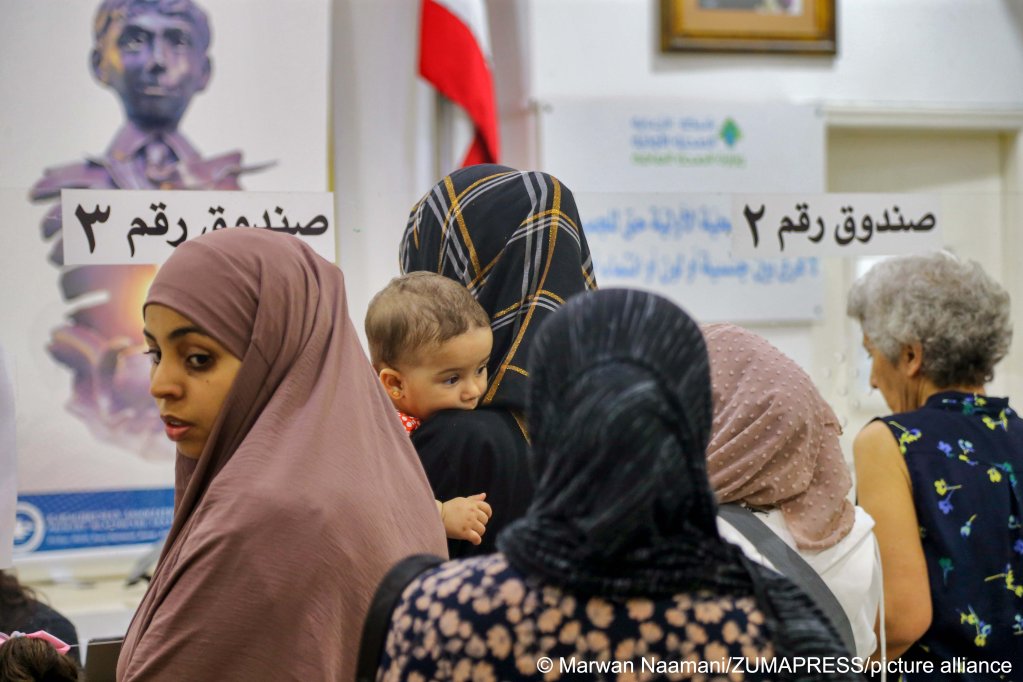The EU has unveiled a 1 billion euro economic aid package for Lebanon – much of which will go to stopping migration to Europe. The move comes amid an increase in the number of Syrian refugees reaching Cyprus.
The president of the European Commission, Ursula von der Leyen, announced in Beirut on Thursday (May 2) that the EU will provide around 1 billion euros in financial aid to Lebanon to "contribute to the country’s socio-economic resilience and its overall security and stability."
Following a joint press conference with the Lebanese prime minister, Najib Mikati, and Cypriot president Nikos Christodoulides, von der Leyen referred to the longstanding relationship and said the EU "strongly supports Lebanon and its people."
Also read: Cyprus spearheads EU-Lebanon plans for migration deal
Controlling the EU's borders
"To underline our support, I can announced a financial package of 1 billion euros for Lebanon that would be available from this year until 2027," von der Leyen said.
Some of the aid will be directed towards strengthening basic services, such as education, social protection and health, as well as economic reform.
But the bulk of the funding – 736 million euros – will go to supporting Syrian refugees "and other vulnerable groups" in Lebanon, AP reported.
The news agency added that a further 200 million euros will go to providing infrastructure, equipment and training for Lebanese military and security forces to strengthen the country’s borders, according to figures from the Cyprus government.
An unspecified amount of EU money will be spent on discouraging Lebanese fishers from selling their boats to people smugglers.
The EU has provided more than 3 billion euros for Lebanon since 2011, mostly for the reception of Syrian refugees, but also for border management and to combat migrant smuggling.
The funding for Lebanon follows other recent agreements with countries such as Egypt, Tunisia and Mauritania to strengthen their border controls and stop undocumented migrants from leaving for Europe.
Blocking the route to Cyprus and Italy
In recent months more people, mostly Syrian refugees, have been leaving Lebanon in boats bound for nearby Cyprus, around 160 kilometers away.
Since the beginning of the year around 4,000 migrants have made the journey, compared with 78 in the first three months of 2023.
Cyprus media reported on Wednesday (May 1) that another group of 15 Syrians, including four children, had arrived in a speed boat early that morning.
They arrived in the Limnitis area, in the Turkish-controlled north-western part of the country, and then crossed to the Cyprus government area on foot, the Cyprus Mail reported.
The Cypriot government has complained of being overwhelmed, saying the number of migrants reaching the tiny EU member state is no longer sustainable and demanding that the European Commission take action. In mid-April, it announced that it would no longer process the asylum applications of people from Syria.
Return of Syrian refugees
The announcement comes amid growing hostility towards Syrian refugees in Lebanon, who number around 1.5 million, according to government figures.
During the press conference, Prime Minister Mikati said his country has borne the greatest "burden" in taking in refugees since the start of the Syrian civil war, and warned that social tensions would increase in Lebanon if it becomes "a transit country from Syria to Europe."

Praising the aid package, Mikati said the security of European countries depended on Lebanon's security, and vice versa.
"Any blowup related to the issue of displaced persons will not be limited to Lebanon but will extend to Europe to become a regional and international crisis," he said.
Lebanese officials have long been calling for the international community to resettle the Syrian refugees in other countries or help to return them to Syria.
Over the past year, Lebanese security forces have expelled thousands of refugees back to Syria, raising concerns among human rights groups.
In a recent statement Human Rights Watch said Syrians continue to face threats, discriminatory curfews and unlawful restrictions on their rights.
Von der Leyen did not directly address these concerns but said the EU supports a "more structured approach to voluntary returns to Syria, in close cooperation with UNHCR (the UN refugee agency)."
With KNA, AP, dpa
